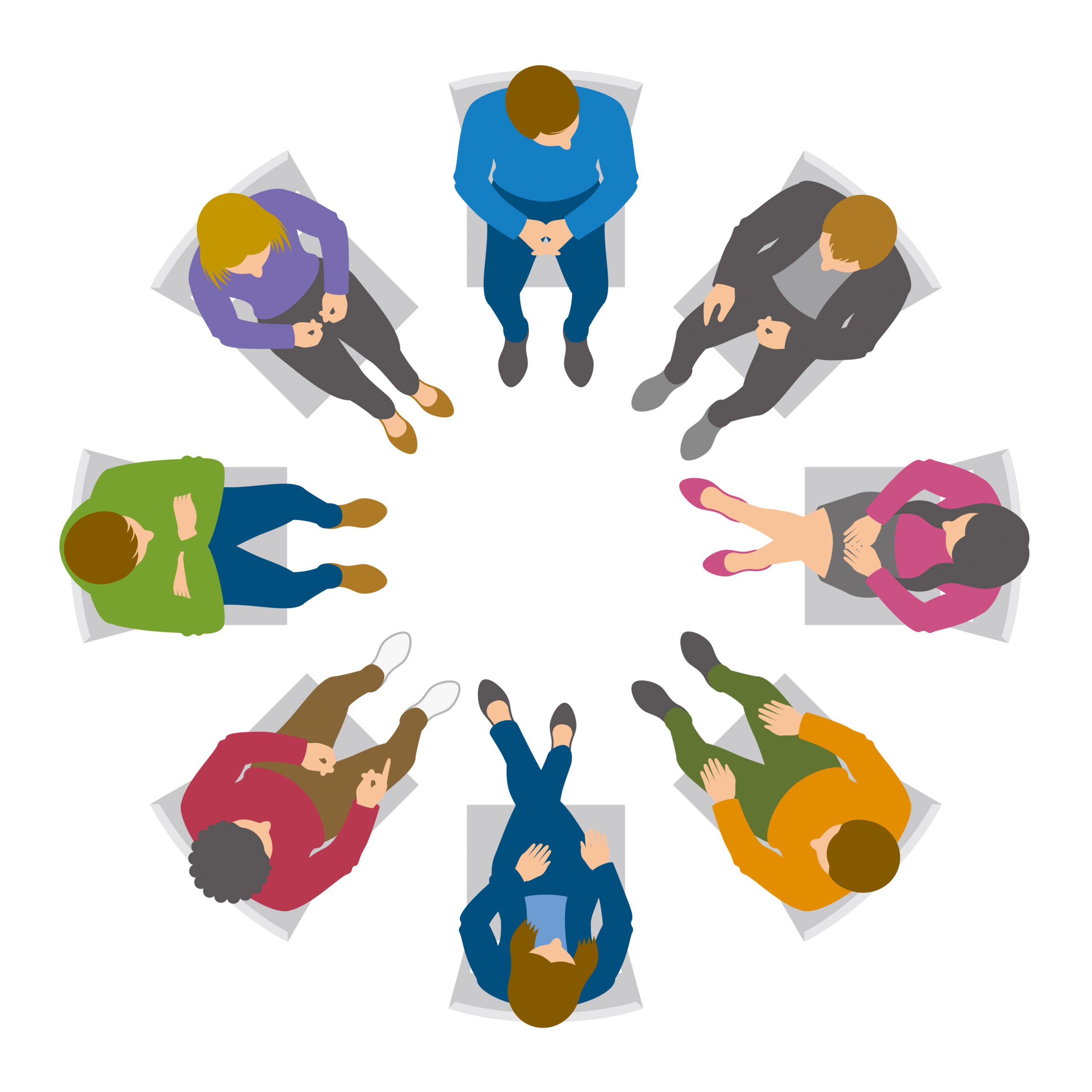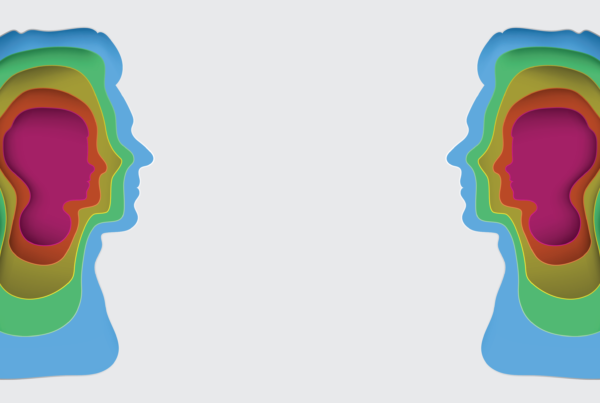 “This Group Saved My Life”
“This Group Saved My Life”
By Richard J. Loebl, LCSW, BCD
When I was a 19 year old college sophomore, struggling with relationship problems and depression, I tried group counseling at my university counseling center. It’s been over 40 years, and I clearly remember one group session that brought me to tears. The therapist pointed out my disconnection from others in the group, and it changed my life. I realized how I protected myself emotionally with a rigid defensive façade, and the group helped me to feel safely connected in my vulnerability with others.
Now I’m the therapist, and I’ve been running counseling groups for a long time. Last month I was surprised and touched by a comment made by a 51 year old woman at the end of one our group counseling sessions. She gave me a big hug and told me “This group saved my life.” She had struggled with addictions, childhood trauma (abuse and abandonment), and serious relationship problems most of her adult life. With group support and feedback she got her life on track, and she’s become an informal “leader” in the group and her community.
Three weeks later, a similar comment was made by a member of my weekly men’s therapy group. One night after group he told me that “This group changed my life.” Over the past few years, this 46 year old man has been in individual therapy, marriage counseling, and has attended personal growth workshops. He told me he’s learned more about himself and has made more positive changes as a result of group counseling than everything else combined.
Why is group counseling so effective? What exactly happens in therapy groups, and how do they work?
Types of Group Counseling
There’s an almost endless variety of therapy groups. Some of the most common types include:
o Men’s groups, with a special focus on men’s issues and life roles. Anger, shame, and relationship challenges are often discussed. Men supporting and encouraging other men is an emotionally powerful, rewarding experience.
o Women’s groups often focus on relationship issues, self-esteem, anxiety and depression, and life balance issues.
o Mixed adult group counseling (male and female) – Relationships, depression, anxiety, addictions.
o Couples groups – Small groups of married couples (relationship issues).
Group Counseling Methods
o Process groups – My preferred method for conducting therapy groups is also considered to be the most effective in creating long-lasting change. Process refers to what actually happens in the group itself (in contrast to content – the topics people talk about in the group). The focus is on the here and now – the interactions between group members. What happens in group is an accurate reflection of what happens outside of group. The group becomes a “living laboratory” that reveals authentic feelings, behavior and styles of interaction. Process also provides an opportunity to practice new, more constructive ways to deal with feelings and relationships in the present.
o Experiential groups – Such as psychodrama and personal growth groups. Structured exercises encourage members to learn about themselves and others through actual experience. These exercises are often used with process-oriented group methods. Exercises include role playing, guided imagery, and the use of art and music to facilitate awareness and reflection.
o Client-centered and psychodynamic – These traditional therapy groups are less structured, free-flowing client discussion groups. The therapist provides personal and interpersonal insights and facilitates positive and supportive client interactions. Process group methods are frequently used in these groups.
o Problem solving and skill building – These focused groups usually address specific problem areas such as interpersonal conflict or avoidance, anger management, social skills, and others.
How Does Group Counseling Help?
Group counseling often provides benefits that are unlikely to occur in individual therapy. Group members are frequently surprised by how rewarding the group experience is. Group members are supportive, understanding, and honest in their feedback. They often have ideas and solutions counselors or therapists may have overlooked. There’s a wider range of perspectives, and group members often encourage and empower each other to make positive changes. Another important benefit is that group counseling is considerably less expensive than individual therapy.
Research studies have identified many “curative factors” in group counseling. Irv Yalom, M.D. is one of the most authoritative experts in group therapy, and he identifies the 12 most important curative factors in group psychotherapy:
1. Helping others – improves self-respect and reduces negative self-focus
2. Sense of belonging and acceptance by the group – feeling connected and understood by others
3. Universality – “we’re all in the same boat”; “I’m not that different from others”
4. Learning from the way others see us – how we come across to other people
5. Relationship skills – learning how to get along better with others; trust; vulnerability
6. Guidance – from group members and the therapist
7. Emotional release – expressing feelings and speaking one’s truth in a safe environment
8. Modeling behavior – learning new methods for dealing with feelings; learning new behavior and styles of interaction from others in group
9. Learning from the re-creation – we tend to re-create our patterns of behavior and reactions (often learned during childhood) with new people in a group
10. Insight – learning about our rigid opinions and attitudes, why we feel and react toward others
11. Hope – from watching others solve problems and make progress in their lives
12. Acceptance – of the realities in life that all of us face together (unfairness; loss; emotional and physical pain; loneliness; and the need to take responsibility)
We currently have openings in our men’s group, and we’re forming a new women’s counseling group. Contact us today for more information, or to talk to a therapist about joining one of our groups.








